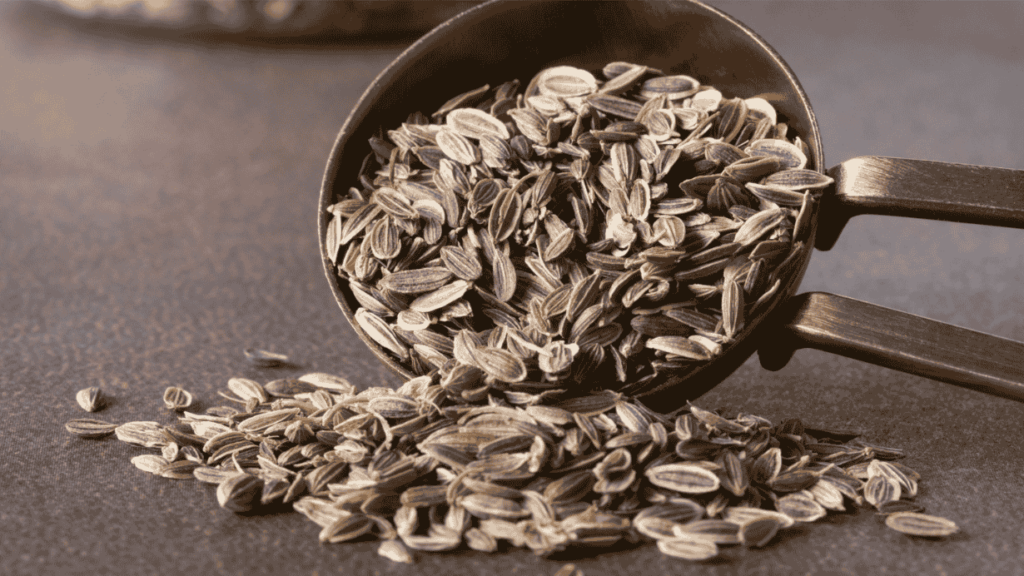Fresh Dill Seeds





Dill Seeds
Menu

| Heading | Information |
|---|---|
| Dill Seeds | Mildly tangy seeds perfect for pickling, bread, and Scandinavian dishes. |
| Producing Countries | Europe, India |
| Producing Benefits | Digestive Aid: Dill seeds have been traditionally used to help relieve digestive issues like indigestion, bloating, and gas. They stimulate the production of digestive enzymes and promote better digestion. Anti-inflammatory: Dill seeds have anti-inflammatory properties that can help reduce inflammation in the body, making them beneficial for conditions like arthritis. Rich in Antioxidants: Dill seeds contain compounds like flavonoids and terpenes that have antioxidant properties, which help fight free radicals and reduce oxidative stress. Supports Heart Health: Dill seeds are a source of fiber and minerals like potassium, which can help lower blood pressure and cholesterol, supporting overall heart health. Antibacterial and Antifungal: Dill seeds have natural antibacterial and antifungal properties, which help fight infections and promote better immune function. Relieves Menstrual Discomfort: Dill seeds are sometimes used to relieve menstrual cramps and other related discomforts due to their mild antispasmodic and soothing effects. Improves Sleep: Dill seeds may have a calming effect and have been used as a mild natural remedy for improving sleep quality and relieving anxiety. |
| Ingredients | Dill seeds come from the dill plant (Anethum graveolens), which is related to the carrot family. The seeds are the dried fruits of the plant, and they are used whole or ground in cooking and for medicinal purposes. Possible Additives: Dill seeds are typically sold without additives, but pre-ground dill powder may contain anti-caking agents or preservatives, depending on packaging. |
| Allergen | Potential Allergies: Dill seeds are generally safe for most people, but some individuals may have sensitivities to dill or other plants in the parsley family. Those allergic to caraway, fennel, or coriander might be at higher risk of an allergic reaction. Cross-Contamination: Dill seeds may be processed in facilities that also handle other spices or allergens, increasing the potential risk for cross-contamination with nuts or other allergen |
| Storage | Cool, Dry Place: Store dill seeds in a cool, dry place, away from heat and direct sunlight, to preserve their flavor and aroma. Airtight Container: Once opened, dill seeds should be stored in an airtight container to protect them from moisture and prevent flavor loss. Whole vs. Ground: Whole dill seeds maintain their flavor longer than ground dill. If using ground dill, it’s best to use it within a few months for the freshest taste. Refrigeration: Dill seeds do not typically require refrigeration, but they can be stored in the fridge if you live in a humid or hot climate to maintain their freshness and prolong shelf life. |
| Nutrition Facts | Nutrition Facts (per 1 teaspoon or ~2.3 grams of dill seeds): Calories: Approximately 6 kcal Total Fat: 0.3 g Saturated Fat: 0.02 g Sodium: 0 mg Total Carbohydrates: 1.3 g Dietary Fiber: 0.6 g Sugars: 0.1 g Protein: 0.3 g Vitamins and Minerals: Vitamin C: 0.2 mg Vitamin A: 0.05 IU Calcium: 10 mg Iron: 0.3 mg Magnesium: 6 mg Potassium: 15 mg Manganese: 0.1 mg |


